We are continuing our series of psychology videos by introducing three of the most famous psychologists of all time: Freud, Adler, and Jung. My daughter Rachel did a great job summarizing the fascinating ideas from each of these famous men, so we dramatized the concepts in this video:
Sigmund Freud
by Rachel Evans
Freud invented an interesting map of the mind consisting of your conscious, subconscious, and unconscious mind: conscious being your thoughts and immediate wants, subconscious being your memories, and the unconscious being someplace difficult to get to which contains hidden desires you know nothing of.
The best idea Freud came up with was the one about the couch. There was a comfy couch, and he put his patients on the couch so they could talk to him about life.
He also invented the iceberg theory: that is, far less than one third of your mind is your conscious thought. Your decision-making is affected by the id, the ego, and the superego. The id is like your instinctual wants for immediate gratification. The superego is like your conscience, mixed with social norms. The ego is the mediator between the id and the superego, trying to make a compromise between them.
Alfred Adler
by Rachel Evans
Alfred Adler! I like this guy, mostly because he was adventurous enough to get together a bunch of people and form his own little Psychology Society. He believed that everyone had a life goal they were striving for, and that translated into their lifestyle and short-term goals.
He also theorized that everyone naturally strives toward getting better at their skills, gaining positions of power, and so on, and that when a person feels that they can’t accomplish those things, they go into what Adler called an Inferiority Complex. He proposed that the feeling of inferiority depends on what the person defines as important. For example, a homeless man might feel hopeless and inferior because there’s not much he can do about his situation. If money is important to him, this may cause a feeling of inferiority. But if the man doesn’t care much for money, he could be homeless on the street and not feel inferior.
But what if a person isn’t homeless and inferior? Their lifestyle is categorized four ways:
~ Ruling Type: someone who is busy but shows no social interest (the desire to help people), someone who is more likely bossy and could end up homicidal. Watch your back.
~ Getting Type: neither busy nor showing social interest, someone who would be more interested in buying and getting a good deal.
~ Avoiding Type: neither busy nor showing social interest, but someone who is so afraid of being a failure that he avoids life to the best of his ability.
~ Socially Useful Type: both busy and socially interested, this person likes getting out into the world and solving problems. Sounds like Adler would be put under this type!
Alfred Adler was a man of many more ingenious ideas. One last one I’ll discuss is his theory that birth order may determine a person’s lifestyle. He determined that first children experience power, superiority, stress and pressure. The middle children usually learn to get along with lots of people, challenging the superiority of the older children. And finally, the younger children are often the ones who, by the time their parents get to them, get special attention and fewer strict rules. They also might have the most difficulty gaining independence from the household.
And so, Alfred Adler, who might just become my favorite psychologist, made many breakthroughs in awesomeness, although he was largely overshadowed by other more famous people. And guess what? He had four kids, and half of them became psychiatrists! I like that.
Carl Jung
by Rachel Evans
Carl Jung’s grandfather was creepy and his parents argued a lot, some of which translated into this theory of introversion and extroversion: everyone has a personality that is inward thinking and external socializing. Also, each person has the following qualities:
Thinking: Most extroverts are objective and have concrete thoughts, and introverts are more subjective and are better at creating ideas.
Feeling: Extroverts are more socially aware and better at winning popularity, and introverts are better at roles that require careful thinking.
Sensation: The perception a person has on reality.
Intuition: Hunches that people have.
Perceiving: People who like to be spontaneous.
Judging: People who like to have a plan.
So… Jung sure did have lots to say about personality.
Other psychologists we studied from the 6th chapter of our psychology book are Victor Frankl and Joseph Breuer. Rachel summarized some of their views on the test she took for this chapter:
In case you are wondering what curriculum we are using for psychology, we are studying {affiliate link} Introduction to Psychology by 7 Sisters Homeschool. We are learning the basics of psychology while dramatizing what we learn in a fun way.
Coming up next… Have you ever stood too close to somebody, and they backed up from you? Learn more about non-verbal communication in our next episode. (Sign up for our monthly newsletter below if you don’t want to miss a single episode.)
Tags: 7 Sisters Homeschool, Adler, Freud, high school, Jung, psychology
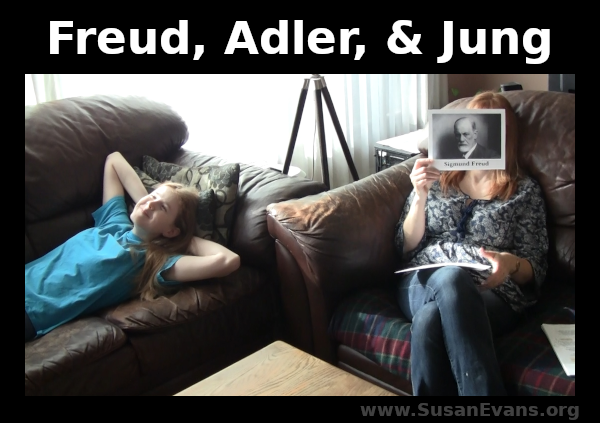

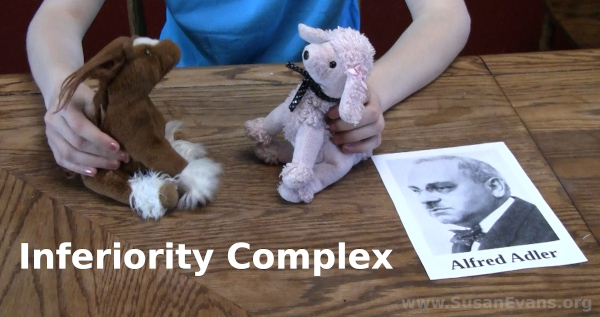
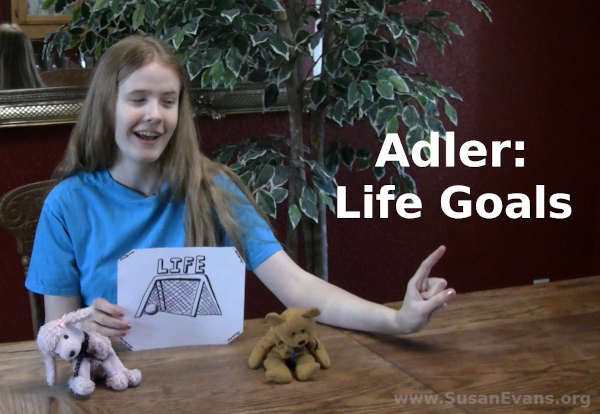
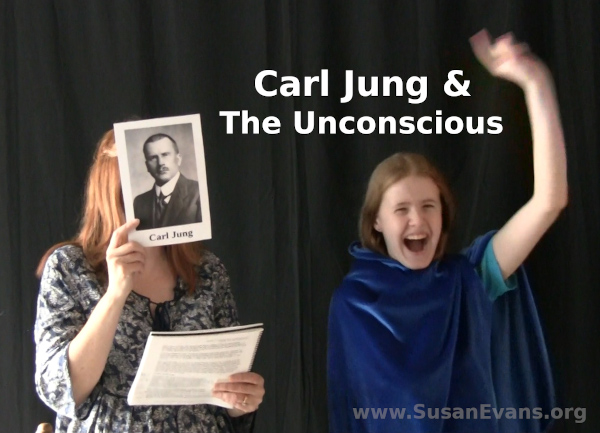
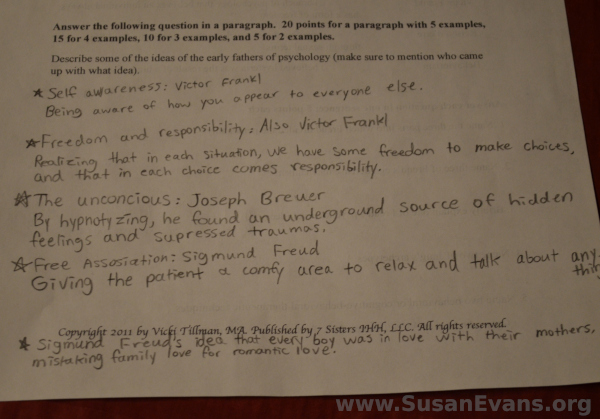




I’ve never really been interested in these guys, have heard of them before, but I’m just not interested in them. Your post though WAS interesting. I feel like I just had a lesson too!! Thanks Susan, I learned heaps through this post, your daughter is a fantastic little actress xx
I will let her know! 🙂
Not only do the kids need to know this, so do I! Thank you Susan for your thoughtful article!
You’re welcome. It was fun to put this together with my daughter to review what she learned.
I took an AP psychology course in high school and I absolutely LOVED it! This stuff and the theories of these men is so fascinating to me. I could have done it forever.
I liked the psychology course I did in high school. It’s always been fascinating to me, too.
This was so interesting! I’m having my older kids read this and watch the video, which was by the way super fun!
Glad your family enjoyed it.
Loved the Youtube video. I will definitely come back to this when we do a psychology unit! Good job; it looks like a great memory!
We have so many great memories in creating these videos!
I find psychology fascinating. I never thought of doing a unit study like this. This makes it so approachable for kids.
I always like to make learning come alive so that it sticks rather than forgetting the information.